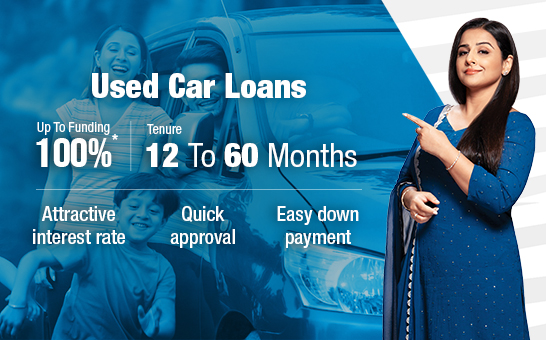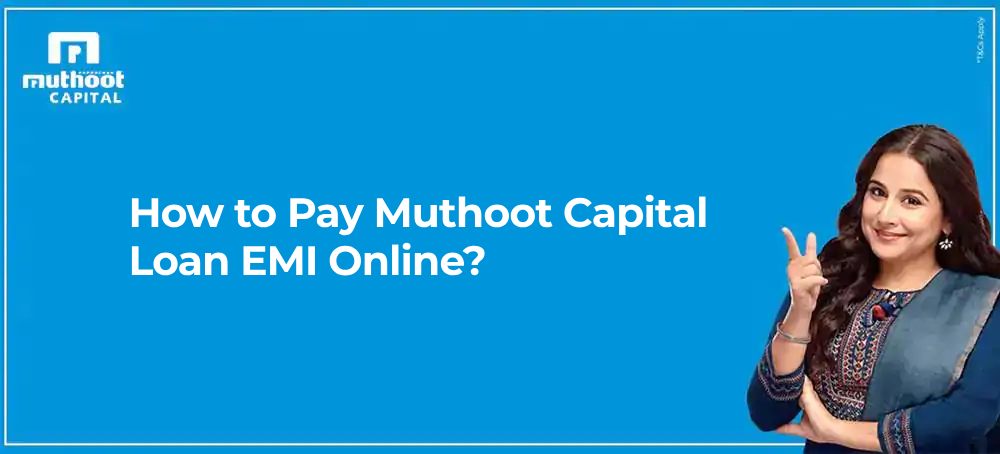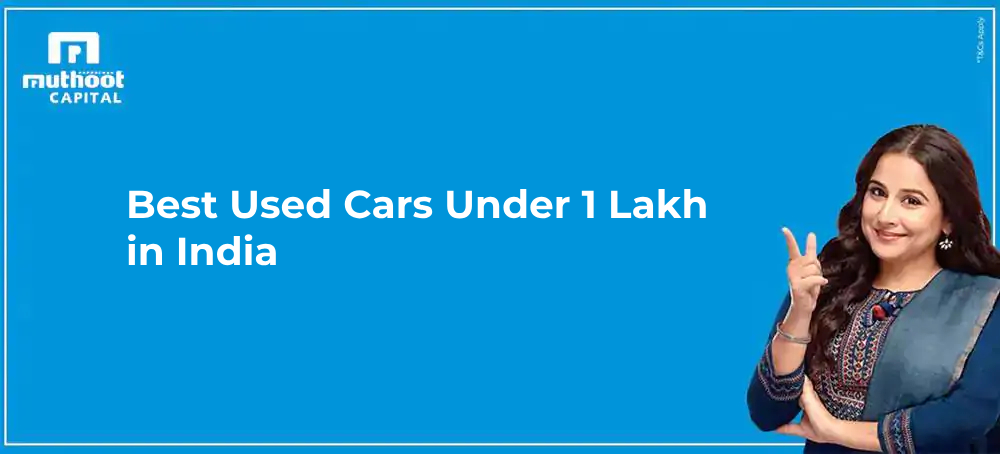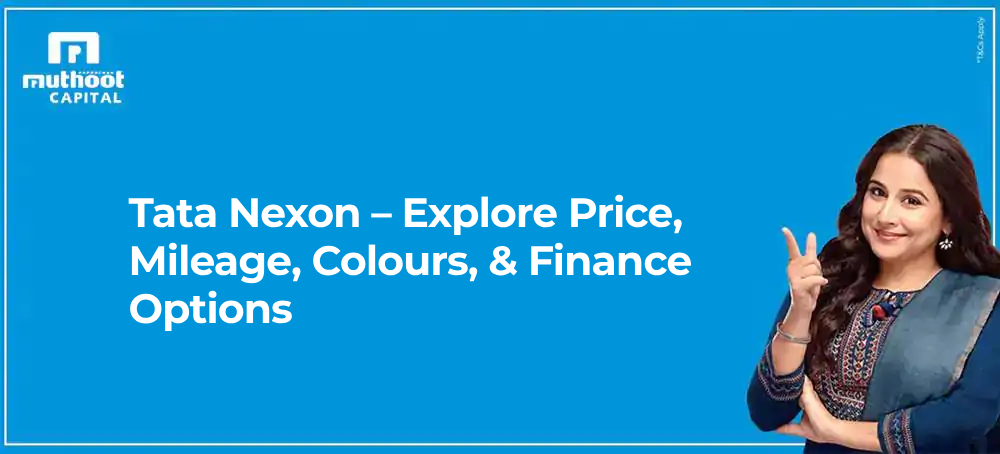Difference Between A New Car Loan And A Used Car Loan
Last Modified: 21-February-2025

As the name suggests, both a new car loan and a Used Car Loan are designed to meet specific needs. A new car loan assists you in purchasing a brand-new vehicle, while a Used Car Loan helps you own a pre-owned one. While both options provide financial support for car ownership, they differ in aspects such as loan amount, interest rates, and eligibility criteria, catering to diverse buyer preferences.
A new car loan typically comes with lower interest rates, as new cars have higher resale value and lower risks for lenders. Loan terms for new cars are often longer, making it easier to manage monthly payments.
On the other hand, a Used Car Loan is meant for pre-owned vehicles. The loan amount is generally lower, based on the car’s current market value. Interest rates may be slightly higher since used cars have a lower resale value.
Knowing these differences can help you understand the new and pre-owned car loan meaning and make an informed choice.
Key Differences
Here’s a table highlighting the differences between a new car loan and a Used Car Loan. This summary will help you understand the key distinctions when considering a new car loan versus a Used Car Loan.
| Aspect | New Car Loan | Used Car Loan |
| Interest Rate | Generally lower | Higher than new car loan |
| Loan Amount | Higher loan amounts | Usually lower loan amounts |
| Loan Tenure | Longer repayment period (5-7 years) | Shorter repayment period (1-5 years) |
| Approval Process | Faster approval due to higher vehicle value | Slightly longer due to the car’s age and value |
| Eligibility Criteria | More lenient with better credit scores | Stricter due to the vehicle’s depreciation |
| Down Payment | Lower down payment required | Higher down payment may be required |
| Vehicle Condition | Brand new with no wear and tear | Subject to the condition and age of the vehicle |
| Depreciation | Depreciation starts after purchase | Higher depreciation due to age of the vehicle |
| Resale Value | Higher resale value | Lower resale value due to the vehicle’s age |
New Car Loan vs Used Car Loan: How to Choose One?
When it comes to financing a vehicle, the choice between a new car loan and a Used Car Loan depends on various factors, including budget, preferences, and financial situation. Both options have their own pros and cons, and understanding these differences can help you make an informed decision. Here’s a comparison of new car vs Used Car Loans to help you choose the best option.
Read More : Second Hand Car Under 1 Lakh
1. Interest Rates and Loan Terms
- New car loan: Lower interest rates, longer loan terms, and higher loan amounts.
- Used car loan: Higher interest rates, shorter loan terms, and lower loan amounts.
New car loans generally come with lower interest rates compared to Used Car Loans. This is because new cars are considered less risky for lenders, as they have a higher resale value and are less likely to require significant repairs in the near future. On the other hand, Used Car Loans carry higher interest rates due to the depreciation factor and the possibility of mechanical issues.
2. Upfront Cost and Down Payment
- New car loan: Larger loan amount, lower down payment.
- Used car loan: Lower loan amount, higher down payment.
When buying a new car, the upfront cost tends to be higher due to the vehicle’s price tag. However, you may get attractive discounts, financing offers, and manufacturer warranties. Old car vs new car loans also vary in terms of the down payment required. For used cars, lenders may ask for a higher down payment since they are considered riskier.
3. Depreciation and Resale Value
- New car loan: Fast depreciation.
- Used car loan: Slower depreciation.
New cars depreciate faster than used cars. A new car can lose around 20% of its value as soon as you drive it off the lot. Used cars, on the other hand, have already gone through the steepest part of their depreciation curve. Therefore, if you are looking to resell in the near future, a used car may offer better value retention.
4. Warranty and Condition
- New car loan: Manufacturer warranty, minimal repair costs.
- Used car loan: Limited warranty, higher repair costs.
A new car typically comes with a full warranty and fewer chances of breakdowns, which can give you peace of mind. New car vs used car warranties differ significantly; used cars might have limited or no warranty left. This could mean more maintenance costs in the long run.
5. Vehicle Features
- New car loan: Latest features, cutting-edge technology.
- Used car loan: Basic features, potentially fewer upgrades.
New cars come with the latest technology, safety features, and design. If you’re looking for cutting-edge features, a new car might be a better choice. Used cars, however, may not have all the latest features, but they still offer essential functionalities.
How to Choose the Right Loan?
When deciding between a new car loan and a Used Car Loan, consider the following:
- Budget: If you have a higher budget and want a brand-new car, a new car loan might be the better choice.
- Financial Flexibility: If you prefer a lower loan amount and a quicker repayment schedule, a Used Car Loan can be more manageable.
- Resale Value: If you plan to sell the car within a few years, a used car might hold its value better.
Choosing the right car loan depends on your needs, preferences, and long-term goals. Whether you opt for a new car vs Used Car Loan, make sure to evaluate your financial situation and find the best interest rates and loan terms available.
How Muthoot Capital Can Help You Buy Your Favourite Car?
Muthoot Capital’s Used Car Loans make car ownership easy with quick approval and a hassle-free application process. Apply online and enjoy features like:
- Loan amount up to Rs. 35 Lakh for pre-owned cars
- Flexible repayment tenure of up to 5 years
- Minimal paperwork and no collateral required
- Instant approval to get your car the same day
Interest Rate
The pre-owned car loan interest rate starts at 13% per annum. You can use the Used Car Loan calculator on our website to calculate your EMI based on the loan amount, interest rate and repayment tenure. You can try different combinations of loan amount and loan tenure to reach an interest rate that matches your budget.
Down payment
Used cars often require a higher down payment as they are considered riskier. Muthoot Capital offers up to 90% LTV for select models. Buying a well-maintained car from reliable sellers like branded dealerships or trusted contacts can help secure a higher LTV.
Insurance
Insurance costs for used cars are lower due to their reduced value. Opting for a well-maintained car with a good history is cost-effective. Lenders typically offer transfer support for Used Car Loans.
How to Apply for a Used Car Loan Online?
Securing a Used Car Loan online is simple and convenient. Follow these steps to apply through Muthoot Capital:
- Visit the Website: Go to the Used Car Loan section on the Muthoot Capital website and click “Apply Now.”
- Fill in Personal Details: Provide your name, email, and mobile number in the application form.
- Complete Additional Information: Enter details such as your preferred car brand, state, monthly income, loan amount, gender, and date of birth.
- Agree to Terms: Tick the box agreeing to the terms and conditions.
- Submit the Application: Click “Submit” to complete the process.
A Muthoot Capital representative will contact you shortly to assist with your application.
Read More : Minimum Cibil Score For Car Loan
Conclusion
Understanding the differences between new and Used Car Loans is crucial for making an informed decision. Both options have unique advantages based on your financial goals and preferences. While new car loans offer lower interest rates and longer tenures, Used Car Loans are more affordable with lower loan amounts and quicker repayment options. Consider factors like budget, vehicle condition, and long-term plans before deciding. Whether you aim to own a brand-new vehicle or a pre-owned one, evaluating your financial situation and comparing loan terms ensures you choose the right loan for your needs.
FAQs
Why is the Used Car Loan interest rate high?
Used car loans typically have higher interest rates than new car loans because used cars are seen as riskier by lenders. They have lower resale value and may require repairs sooner, increasing the risk of loan default. As a result, lenders charge higher rates to compensate for this risk.
Which car is the best, new or old?
The choice between a new or old car depends on your budget and preferences. New cars offer the latest features, a full warranty, and minimal maintenance, but they depreciate quickly. Used cars are more affordable and have slower depreciation but may come with higher maintenance costs and limited features.
Can I get a loan on the full value of a second-hand car?
Yes, it is possible to get a loan for the full value of a second-hand car, but it largely depends on the lender’s policies and the car’s condition, age, and value. Typically, lenders may offer up to 80-90% of the car’s value as a loan.
How can I get a low-interest loan for a used car?
To secure a low-interest loan for a used car, maintain a good credit score, compare offers from various lenders, and choose a loan with a shorter repayment term. Offering a larger down payment or opting for a secured loan can also help lower the interest rate.
Is it good to take a Used Car Loan?
A Used Car Loan can be a good option if you want an affordable car and have a limited budget. However, you should consider factors like the age of the car, its condition, and higher interest rates before making a decision. Ensure the car’s maintenance costs are manageable.
Which car is best, new or old?
The best car for you depends on your preferences and budget. A new car offers modern features and fewer maintenance issues but comes at a higher cost. An old car is more budget-friendly but might come with higher maintenance and lower resale value. Consider these factors before deciding.
Why is a second-hand car loan higher?
Second-hand car loans are higher because used cars are more risky for lenders. They are more likely to experience depreciation, and their condition may not be as reliable as new cars, making lenders more cautious and charging higher interest rates.
Which loan is better, a personal or a car loan?
A car loan is generally better for purchasing a vehicle as it offers lower interest rates and is specifically designed for this purpose. A personal loan, while more flexible, typically comes with higher interest rates and may not be as cost-effective as a car loan.
Trending Post
- Best Used Cars In India Under 1 Lakh For Beginners
- Best Budget-Friendly Cars Under 5 Lakhs In India
- Best Online Platforms For Quick Used Car Loan Applications
- How To Accurately Calculate Emi For A Used Car Loan?
Categories
Need Help?
Please feel free to contact us on toll free number or send us your query on our email.




